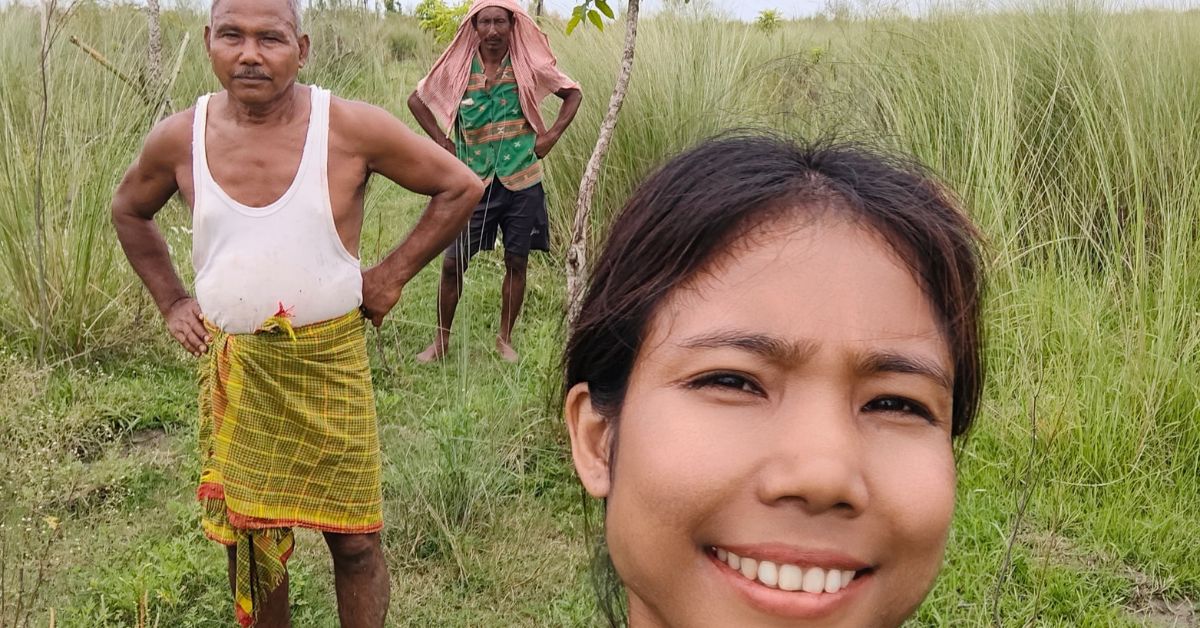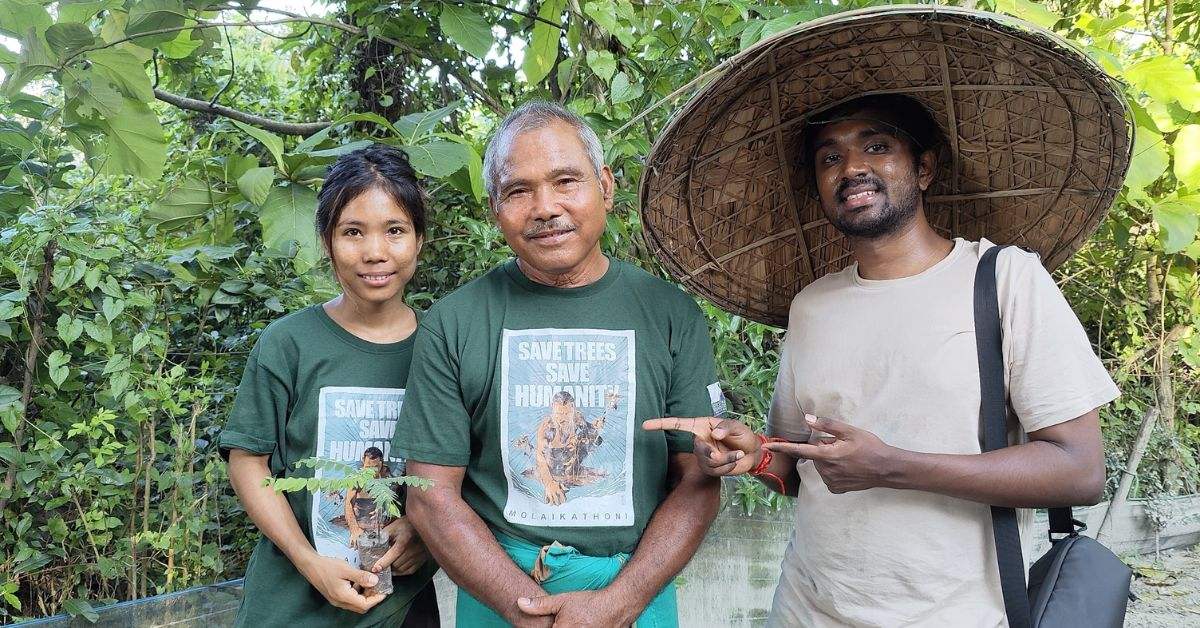This 25-YO ‘Forest Queen’ Is Planting a Million Trees to Rebuild Assam’s Flood-Hit Villages
Born under the shade of trees her father once planted, Munmuni Payeng’s story begins on the shifting sands of Majuli, the world’s largest river island nestled in the mighty Brahmaputra. A place of serene beauty, Majuli is also a land of great fragility. Floods come uninvited, erosion eats away at villages, and wild elephants wander through human homes. But for Munmuni, this was home, a place where nature was both teacher and test.
Now 25, Munmuni is known fondly by locals as the ‘Forest Queen of Assam’, a name she’s earned not through titles or acclaim, but by silently, persistently planting hope where devastation once stood. The daughter of the legendary Jadav “Molai” Payeng, who is celebrated globally as India’s “Forest Man”, Munmuni grew up watching her father transform a barren sandbar into a lush 1,360-acre forest. She remembers chasing butterflies between saplings, and learning early on that every tree planted is a promise to the future.
She walks a path inspired by her father’s legacy, but carves her own — with people by her side, and a mission uniquely her own.
Floods, fury and a fight to heal
Majuli is no stranger to nature’s wrath. As river levels rise, the island shrinks. With each flood, people lose land, livestock, and often their sense of stability. Munmuni grew up watching the trauma of displacement, of neighbours rebuilding again and again, of childhood trails lost to waters. Yet, instead of turning away, she decided to dig deeper, quite literally.
Inspired by her father’s tenacity, Munmuni launched a mission of her own: to plant one million native trees across Assam’s most flood-prone regions. Her aim is not just to green the landscape, but to create natural flood buffers, restore biodiversity, and give communities a fighting chance.
 Inspired by her father’s tenacity, Munmuni launched a mission of her own: to plant one million native trees.
Inspired by her father’s tenacity, Munmuni launched a mission of her own: to plant one million native trees.
Where trees become a line of defence
Through her organisation ‘Seuj Dhoroni’ (Green Earth), Munmuni has been rallying communities across Assam, from Adivasi groups to schoolchildren, to take part in tree-planting drives and conservation efforts. These aren’t just symbolic gestures. She chooses native species that help hold soil together, support local flora and fauna, and resist extreme climate conditions.
In villages where hope seems to get washed away each monsoon, she arrives with seeds, stories, and solidarity. Children are her biggest allies. “When you plant with a child, you plant for a lifetime,” she remarks.
Her work also includes conducting awareness drives, community workshops, and educational walks through forests, making environmental stewardship not just a duty but a shared joy.
A legacy rooted in love
 For Munmuni, this isn’t just about continuing her father’s legacy but more about deepening it.
For Munmuni, this isn’t just about continuing her father’s legacy but more about deepening it.
What makes Munmuni’s journey so moving is its simplicity. She doesn’t chase fame. She doesn’t give grand speeches. She plants, she nurtures, and she returns. In a world distracted by noise, she remains grounded in purpose.
For Munmuni, this isn’t just about continuing her father’s legacy but more about deepening it. While Molai Payeng worked largely alone to raise his forest, Munmuni works with the community, making conservation democratic and deeply local.
At 25, she represents a generation that sees climate change not as an abstract threat, but a lived experience. And in Assam’s most vulnerable pockets, her green mission is a quiet revolution taking root.
News